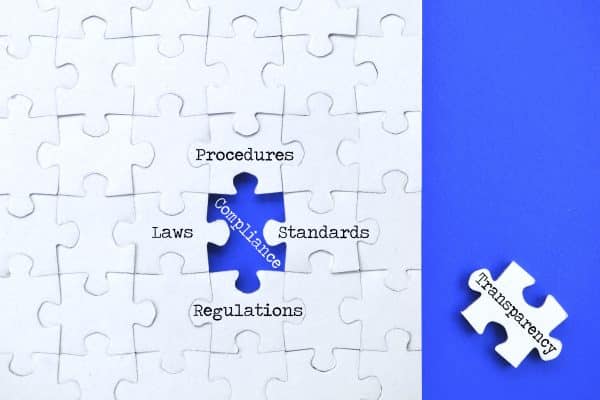Transparency and trust are the backbone of any strong organization. Without them, there is no credibility, which is why ISO 37001 was created by the International Organization for Standardization to support organizational success.
What is transparency and why does it matter?
Transparency is the quality of being open and honest. It’s one of the most important tenets of democracy, and it’s key for organizational success. When something is transparent, people are able to understand it without difficulty. A lack of transparency creates confusion and mistrust in the organization, which can lead to people quitting or not wanting to work there.
What about transparency alters the performance of organizations, laws and regulations?
Transparency is defined as being “publicly known or evident” and is an expectation for most organizations. However, transparency has a number of subtle effects that are not always considered. For example, does it affect the performance of employees? Transparency can be seen as an effective tool for reducing fraud and cost cutting through increased accountability.
Why transparency must be at the core of trust?
Transparency allows for a better sense of control, increased acceptance and engagement from employees. This in turn, leads to higher productivity which benefits both the company and the employees. Most importantly, transparency supports trust by promoting complete openness and accountability. It is clear that organizations with a culture of transparency are more successful than those without such a culture because transparency promotes trust.
How to develop an organizational culture of trust to build a sustainable future
We live in a business environment where the demands of constant change, global competition, and disruptive technologies can make it challenging to keep pace with the evolving needs of customers. Without trust, organizations are likely to stagnate and struggle to grow. Trust is an essential component to achieving organizational success because it fosters innovation, collaboration, and positive outcomes.
Conclusion
Effective leadership requires transparency and trust. Without these two things, an organization will always struggle to achieve success. When a company has little transparency, it is likely to have low customer service ratings and high employee turnover. However, when it fosters transparency, it strengthens its reputation and paves the way for organizational success

